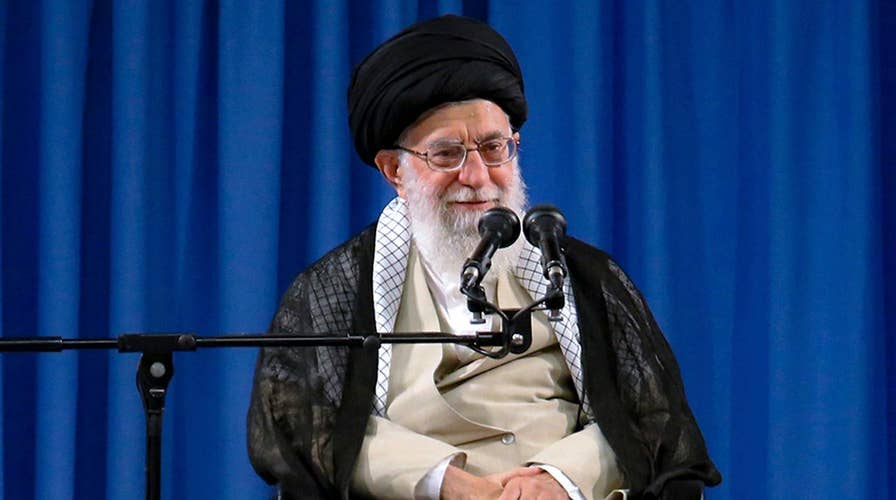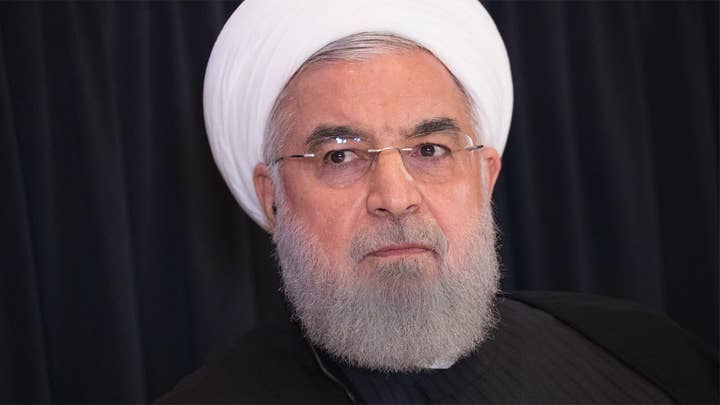Iran issues warning as top Pentagon officials update President Trump on security situation in Middle East
Acting Defense Secretary Patrick Shanahan denies Pentagon officials are presenting a plan to send as many as 10,000 American troops to the Middle East to defend against potential Iranian threats; State Department correspondent Rich Edson reports.
President Trump’s instincts are right: war with Iran is not in American interests. That is why his May 24 approval of the United States sending 1,500 more troops to the Middle East while selling $8 billion more in arms to Iran’s adversaries is so concerning.
To his credit, Trump says he still intends to keep the U.S. out of war with Iran and contends that the administration’s newly-declared troop surge is mostly protective in nature. However, according to Defense Priorities fellow Lieutenant Colonel Danny Davis, who deployed to the Middle East four times in his 21-year career, “the only thing we gain by sending more troops over there is that it ratchets up tensions and it increases the chance that even an accident could spawn a war.”
PENTAGON SAYS IRAN'S REVOLUTIONARY GUARDS RESPONSIBLE FOR OIL TANKER ATTACKS
That is not to say that, absent a troops surge, the U.S. should sit with its arms folded and do nothing after Iran may have attacked four U.S. oil tankers, deployed short-range missiles in the Gulf, and engaged in proxies in Iraq and Syria. America’s defense leaders should not become meek in response to this condemnable behavior, hiding under the covers and letting Iran send the U.S.’s national security interests running amuck, but they should keep the whole scope of the national security landscape in perspective.
Presently, the United States already has 60,000 to 80,000 troops in the Middle East, while Iran remains contained by neighboring countries like Egypt, Israel, Saudi Arabia, and the United Arab Emirates. Why risk escalating tensions by adding more troops when Tehran is already outnumbered?
While the U.S. should continue to work with its local partners in the region, handing U.S. arms to these nations is not in American interests either – not after a February report found that previous arms sales to these countries went into Al Qaeda-linked hands. This was not a fluke occurrence; in 2015, U.S. arms ended up in the possession of terrorist groups as well. The U.S. simply cannot afford to risk complicating matters relating to terrorism in other parts of the region.
Although defense and intelligence leaders say they have “very high confidence” that Iran was responsible for the recent incidents, they said the same about the prevalence of weapons of mass destruction leading up to the Iraq War. That does not mean they are wrong and that the threat should not be taken seriously, but given that ISIS has already been territorially defeated and the U.S. is now the world’s leading producer of oil, why rile things up now before a more definitive picture arises?
As President Trump has made clear in the past, anyone can make war, but only the most courageous can make peace. What separates Trump from his predecessors is a desire to negotiate and engage in diplomacy. Halfway through his presidency, it has already worked tremendously well, with the president holding a historic summit with North Korean leader Kim Jong Un last June despite analysts stating for years that one would never happen.
CLICK HERE TO GET THE FOX NEWS APP
While sending more troops and arms into the Middle East was a mistake, the president can still prevent conflict with Iran by shifting back to a more conciliatory tone and putting his diplomacy hat back on. That does not mean he should remove the tens of thousands of troops already in place in the Middle East or back down on his asks and demands for Tehran, but with the whole world parsing his every word, his approach matters.
If anyone can make peace with Iran, it is the current president. Even despite the recent setbacks, he has proven that he has the demeanor and mindset needed to become this half-century’s leading difference-maker in the foreign policy arena so long as he mandates that his staff put his instincts into action. For the sake of America’s national security, here’s hoping that it happens.

